What is Ukrainian music, and what does it say about the war?
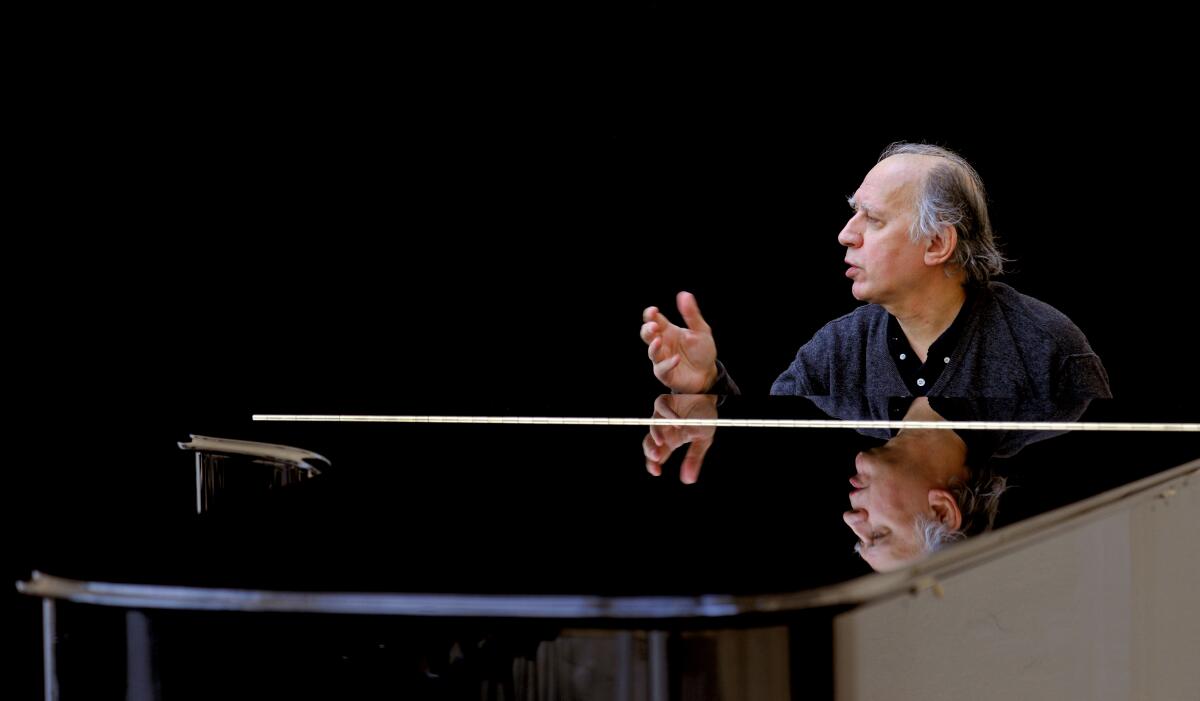
- Share via
The first week of May, I attended four concerts. All four, whether by chance or intent, had a connection with Ukraine. That was obvious the first day of May at a benefit concert for Ukraine put on by the Wende Museum and Jacaranda Music at the Robert Frost Auditorium in Culver City. And while Ukrainian American pianist Inna Faliks’ Ukraine-centric recital several days later at the Wende contained no Ukrainian music, its programmatic theme was “The Master and Margarita,” a novel by the Ukraine-born author Mikhail Bulgakov.
In between those two concerts, a pair of concerts at Walt Disney Concert Hall were seemingly unrelated to Ukraine. No mention was made of that country or its invasion by Russia at a piano recital by Daniil Trifonov or at the first of Gustavo Dudamel’s two-week Los Angeles Philharmonic series combining Stravinsky’s early ballets with Latin American music. But the performances were, indeed, indebted to the besieged country so much on our minds.
Trifonov, the 31-year-old Russian star pianist who lives in New York, had planned his program well before Russia lined up its tanks on the Ukrainian border last winter. He began with the Third Piano Sonata by Karol Szymanowski, the great Polish composer of the first half of the 20th century who inspired a modern nationalist Polish musical style. But Szymanowski was born in Ukraine.
Prokofiev’s quirky, nasty, seldom-heard piano miniatures, “Sarcasms,” followed. Prokofiev, one of Russia’s best-known 20th century composers, happens to have been from a village outside Donetsk, the main city of Ukraine’s disputed Donbas region, which so obsesses Russian President Vladimir Putin. Trifonov did add an unannounced Russian-sounding Ukrainian encore by Mykola Lysenko.
What does Stravinsky’s “The Rite of Spring” — maybe the most celebrated and influential work of the 20th century, which Dudamel stunningly performed two days later — have to do with Ukraine? More than is normally acknowledged. Stravinsky’s mother was Ukrainian. His family had an estate in Ukraine, where the young composer spent idyllic summers. Although Stravinsky did his best to disguise it, “The Rite” includes elements of Ukrainian folk music, as do other early Stravinsky ballets. The gorgeous lullaby from “The Firebird” is said to also have had Ukrainian folk origins.
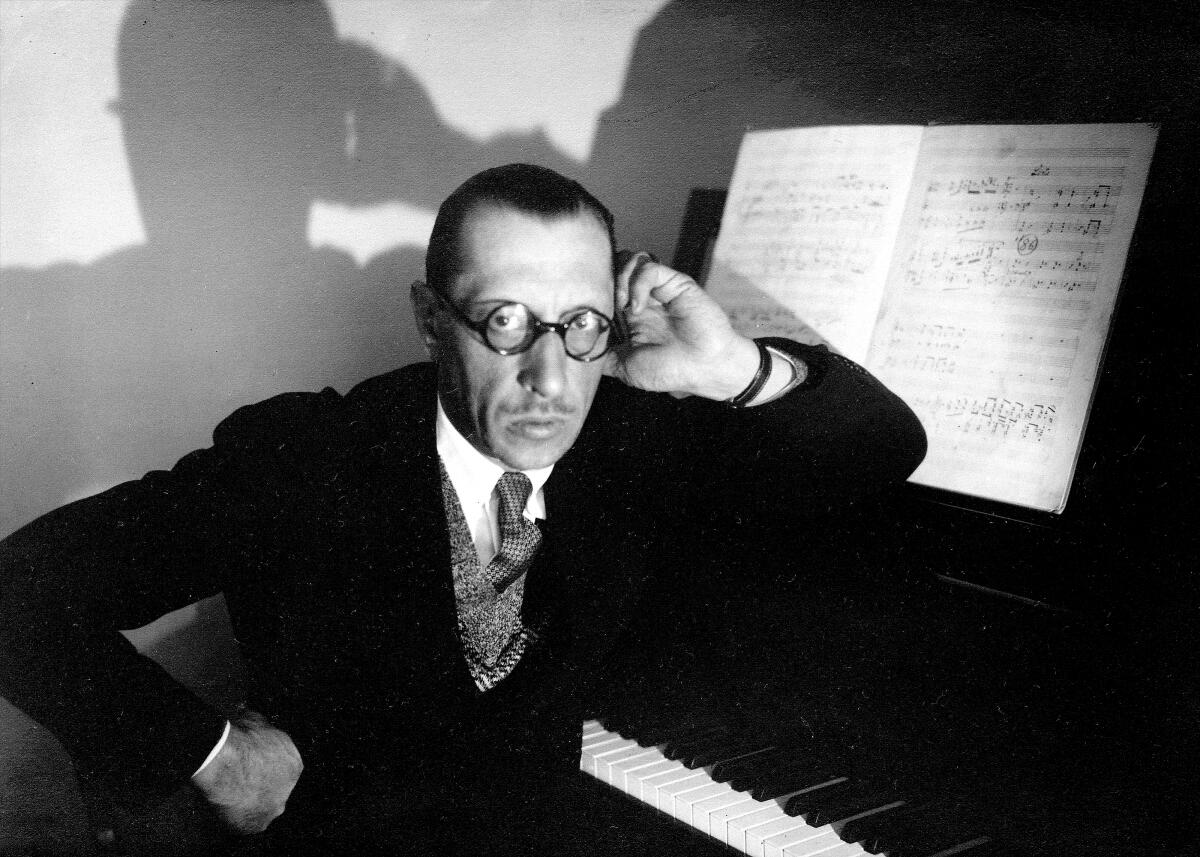
Given the changeability of borders in that part of the world, and the political and artistic dominance of the Russian empire and the Soviet Union, it is not altogether surprising that Polish music might have Ukrainian roots or that Russian and Ukrainian music would be closely intertwined. Before Ukraine gained independence from Russia in 1991, it would have been as natural for a young Prokofiev to head off to Moscow as it might be for a young Angeleno composer to go to New York (a trip that happens to be five times farther than the distance between Kyiv and Moscow).
So let’s look at the United States. George Gershwin, Leonard Bernstein, Michael Tilson Thomas and Morton Feldman all have Ukrainian roots. Factor in Belarus and Lithuania — namely the Pale of Settlement, with its Jewish shtetls, or villages, that extended across varying borders and where ethnic identity in the region was often stronger than national — and we can include Irving Berlin, Aaron Copland and Vernon Duke, among others, as creators of what we like to consider quintessential American music.
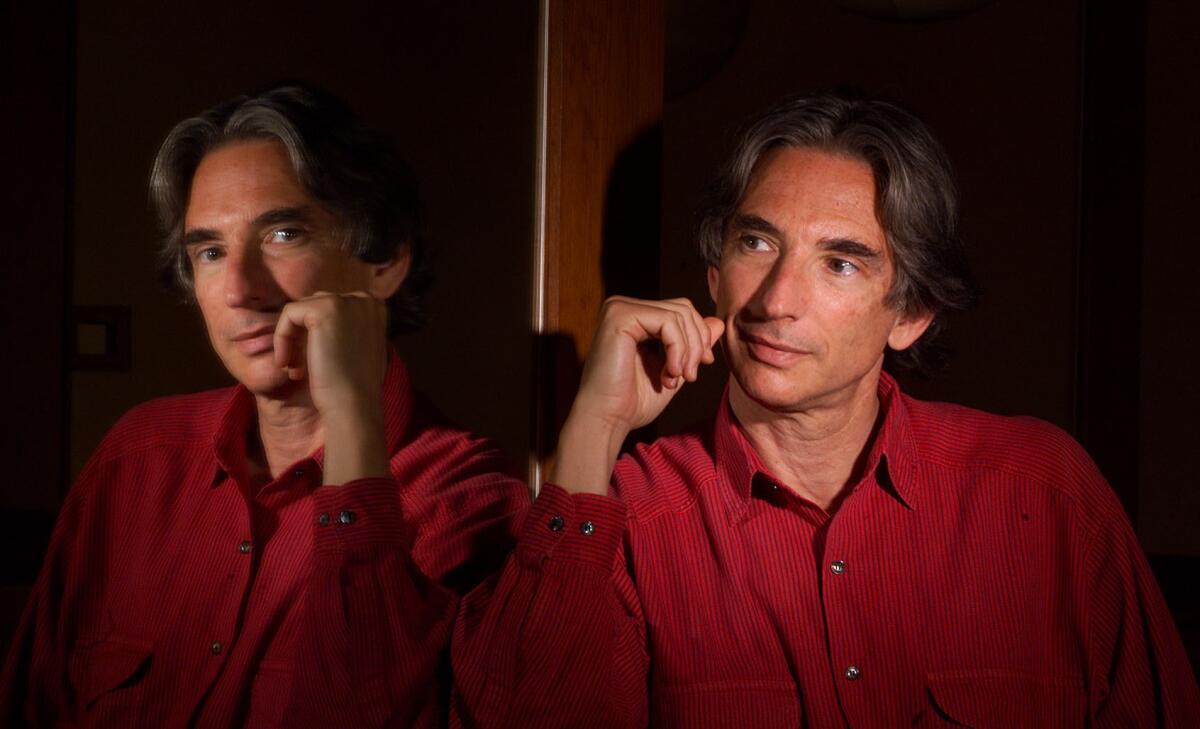
Now add violinists Isaac Stern and Jascha Heifetz and cellist Gregor Piatigorsky. All were born or rooted in Ukraine and all fundamentally contributed to how Americans came to make and listen to music.
Nationalism and music is, of course, always complicated. No one in the West, for instance, wants to hear Tchaikovsky’s militaristic “1812 Overture” right now. We cancel Tchaikovsky’s “Little Russian” Symphony because of its title. (“Little Russia” was once Russia’s fond, albeit condescending, nickname for what it considered to be a favored region in its empire, rather than a nation in its own right.)
The context of both of these works should be examined more closely, though. The “1812” brass-band bellicosity and canon shots can be hard to take even in peacetime. But it was, in fact, written in 1880 to commemorate the Russian victory over Napoleon’s invading army.
Tchaikovsky did not give his Second Symphony, which uses Ukrainian folk tunes for its themes, its nickname. It was dubbed “Little Russian” by an, ugh, influential Moscow music critic. But the composer did have Ukrainian blood and did adore the Ukraine countryside, where he spent many summers and wrote much music. The solution to the naming problem is simple. There is no law, even in the court of musicology, against canceling the critic and calling it Tchaikovsky’s “Ukrainian” Symphony.
But what exactly is Ukrainian music? That is a far easier question for Ukrainians to answer than for the rest of us. The only major Ukrainian composer with an international reputation who didn’t leave the country for good is Valentin Silvestrov. Right now, even he is no longer in the country, but only because the 84-year-old composer was forced to evacuate to Berlin when the Russians began shelling Kyiv.
Silvestrov is, in many ways, a singular case. In his youth he was a member of an avant-garde movement that rejected both the neo-Romantic style of his teacher, Borys Lyatoshynsky — an accomplished composer of symphonies and operas, still played in Ukraine but rarely elsewhere — and the official Soviet realist decrees. But by the mid-1970s, Silvestrov found himself rejecting the avant-garde as well and began a quixotic post-Classical and post-Romantic mission of reclaiming an unreclaimable past.
Although often sorrowful and sometimes sentimental, his music is always poetic and exceedingly beautiful. His 1996 piano solo, “The Messenger,” given an exquisitely impalpable and moving performance by Steven Vanhauwaert at the Wende benefit, had the airy unreality of trying to restore Mozart through remnants of 18th century sound waves that may still be found in the atmosphere. The purity of such post-history suggests a kind of spiritual wonderland that harkens back to the roots of Ukrainian chants.
Ukraine never lacked worthy composers, such as Lyatoshynsky, who stayed and ensured the country a continued cultural currency. Kyiv, Lviv and Odesa have their own individual styles. But to the outsider, much of it sounds Russian. To further confuse nationalities, native Russian composers often celebrated Ukraine in their works.
Mussorgsky’s “Pictures at an Exhibition” famously ends with “The Great Gate of Kiev.” He and his friend Rimsky-Korsakov set their operas “The Fair at Sorochyntsi” and “May Night,” respectively, in Ukraine. Tchaikovsky used Ukraine as the subject for no less than three operas: “Mazeppa,” “Cherevichki” and “Vakula the Smith.”
Further afield, Czech composer Janáček wrote a stunning tone poem after the Ukrainian Cossack protagonist of Ukrainian-born Nikolai Gogol’s Russian novel “Taras Bulba.” In 1989, German composer York Höller wrote a modernist opera based on “The Master and Margarita” for Paris Opera, and several years later Andrew Lloyd Webber spoke of turning the novel into a musical.
At her Wende recital earlier this month, Faliks premiered Veronika Krausas’ “Master & Margarita” Suite, written for the occasion. In the Russian novel, the devil visits and wreaks marvelous havoc on Soviet Moscow. In her suite of seven sly dances, Krausas, who is a Canadian American Los Angeles composer of Lithuanian heritage, lightly waltzes around and toys with fanciful passages from Bulgakov’s novel. As with Silvestrov, what isn’t there is as intriguing as what is. Each dance is a kind of fantasy, full of musical hints. Crossing borders is, and has always been, the way of music.
One notable physical crossing of borders occurred during the height of the Cold War in 1959. Leonard Bernstein took the New York Philharmonic on a diplomatic tour of Russia, where he hoped to take some of the chill off the Cold War.
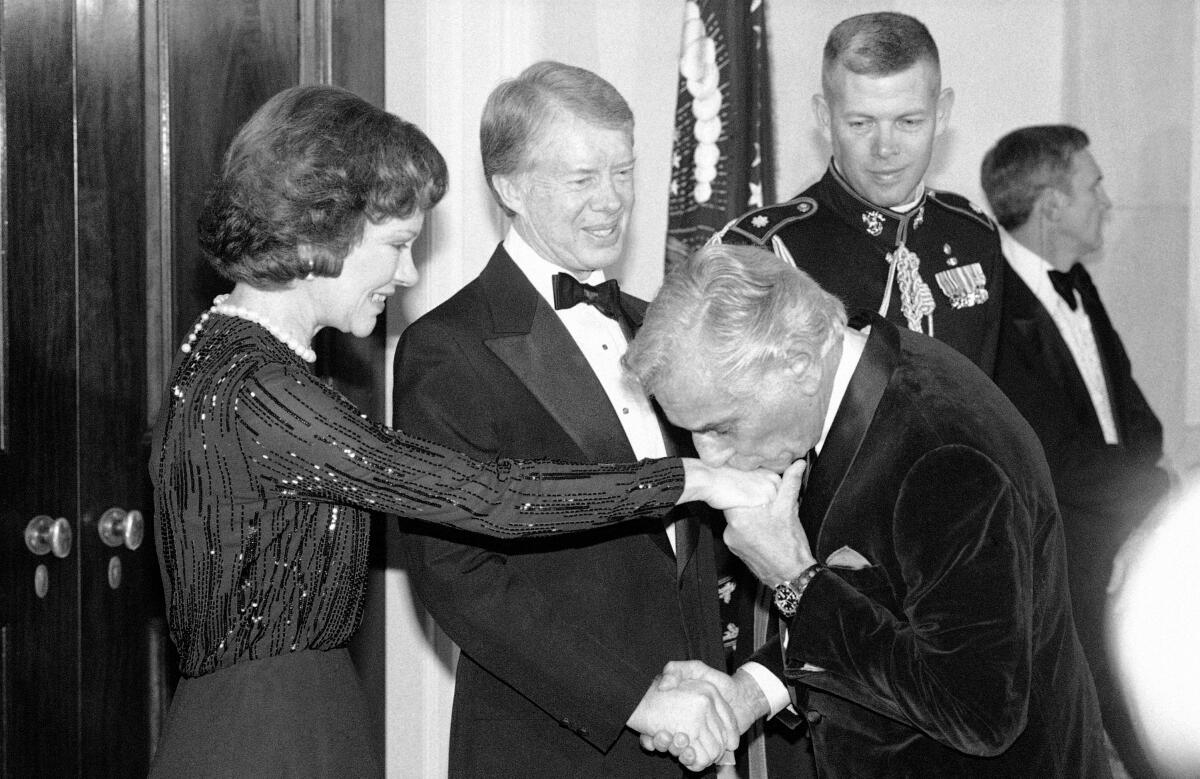
“Perhaps music can tell us some surprising things that we can’t find out from books and newspapers,” he told a Moscow audience before a performance. “The first thing of all to be said is that Americans and Russians simply love each other’s music.”
That has never been truer. Russian music is a daily staple of classical music and dance in America, as it is throughout Europe and Asia. Nor will American sanctions or Putin censorship likely remove pervasive and persuasive American music from Russia.
As for Ukraine, where would Russian music — and Putin-ian nationalism — be without Prokofiev and Tchaikovsky and all the rest? Where would our music be without Bernstein (whom the Russians lionized), Gershwin, Feldman and the rest?
And where might we be if we, as we once did with the Soviet Union, tried our hands at a little cultural diplomacy that started from a place not of common interest but common love. Cultural leaders can say things that politicians either can’t or would never think of to say.
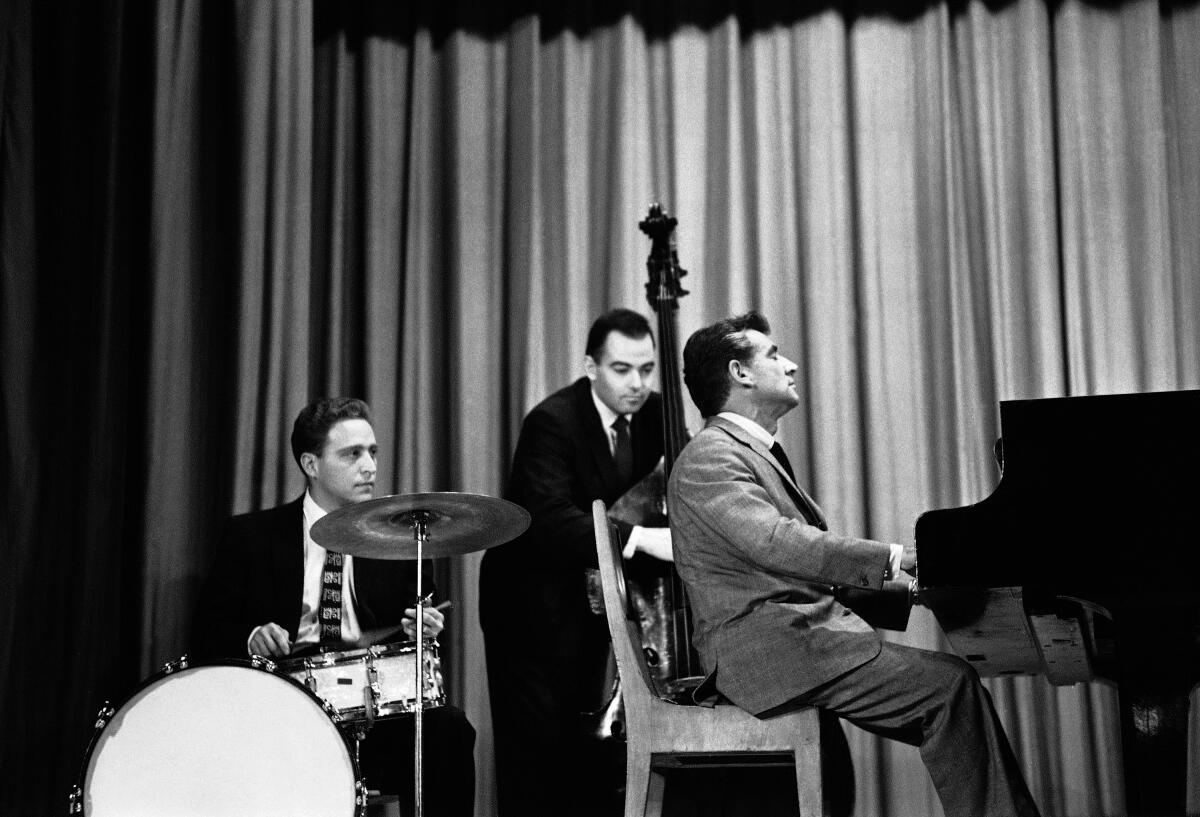
Bernstein also told this to Muscovites in 1959: “Here you realize at once how altogether old-fashioned wars are, how futile and unworthy it is that anyone should emerge as the victor.
“Here, in the very center of Europe, one cannot help feeling … that wars serve only a pretext for the satisfaction of greed and thrust for power and for the economic expansion of one to the detriment of the others.” He then conducted Shostakovich.
What if today, an American orchestra with a beloved conductor (Gustavo Dudamel and the Los Angeles Philharmonic would do) brought a message of peace laden with great Tchaikovsky to Moscow? What if the demonized Valery Gergiev, who has been banned from the West because of his closeness to Putin, and his Mariinsky orchestra brought us a message of peace laden with great Ukrainian music, whatever that might be?
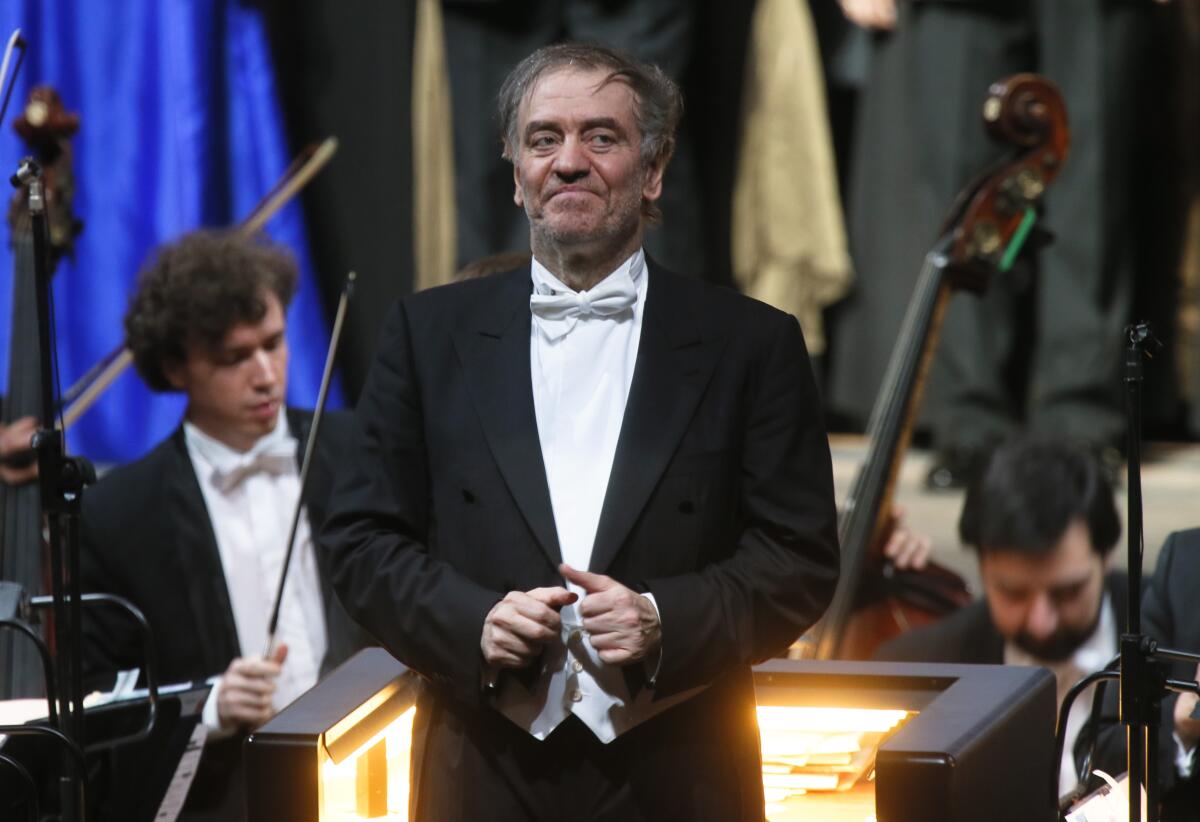
Speaking to The Times seven years ago, Gergiev said that the responsibility for peace between Russia and Ukraine “lies in the hands of the leaders in Russia, the U.S. and Europe. These people have to now decide what it takes to stop the fighting. If they do not, all of them will go down in history as the people who did not find an answer.
“They will never be forgiven. Never!”
Someone, even if it’s Gergiev, has to tell them.
More to Read
The biggest entertainment stories
Get our big stories about Hollywood, film, television, music, arts, culture and more right in your inbox as soon as they publish.
You may occasionally receive promotional content from the Los Angeles Times.











